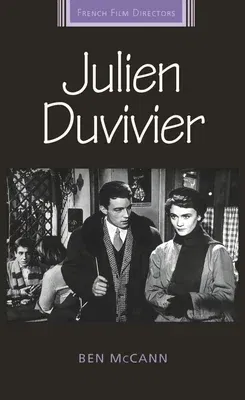Ben McCann
(Author)Julien DuvivierPaperback, 3 July 2019

Qty
1
Turbo
Ships in 2 - 3 days
In Stock
Free Delivery
Cash on Delivery
15 Days
Free Returns
Secure Checkout

Part of Series
French Film Directors
Part of Series
French Film Directors Mup
Part of Series
French Film Directors Series Mup
Print Length
272 pages
Language
English
Publisher
Manchester University Press
Date Published
3 Jul 2019
ISBN-10
1526139553
ISBN-13
9781526139559
Description
Product Details
Author:
Book Format:
Paperback
Country of Origin:
US
Date Published:
3 July 2019
Dimensions:
19.84 x
12.85 x
1.45 cm
ISBN-10:
1526139553
ISBN-13:
9781526139559
Language:
English
Location:
Manchester
Pages:
272
Publisher:
Weight:
267.62 gm